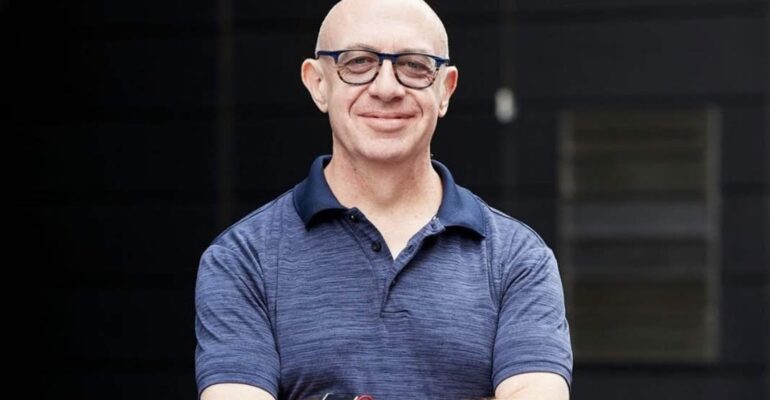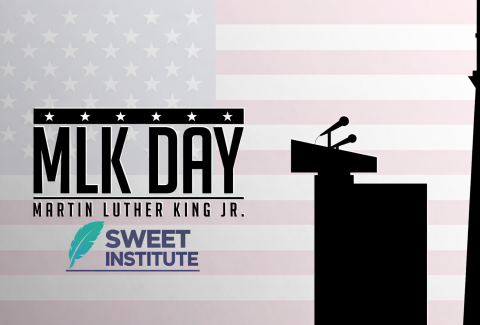Scott Christnelly, LCSW: A Journey of Growth, Resilience, and Purpose
“Every job opportunity I’ve had has felt like part of a plan.” These words from Scott Christnelly, a licensed clinical social worker with over two decades of experience, encapsulate a career built on trust, perseverance, and an unwavering commitment to growth—both personal and professional. From his early days in social work to his current role navigating the complexities of telehealth and psychotherapy, Scott’s story is a powerful testament to the resilience and adaptability that define the heart of this field.
The Beginning: A Calling Discovered
Scott’s journey into social work wasn’t conventional. In his early years, he pursued a career in acting, a path he now recognizes as formative. “Acting taught me how to use myself—to understand who I am,” he reflects. When his acting career reached a natural conclusion, it was a chance encounter with hypnotherapy that opened the door to a new purpose. “I had never thought about social work before, but after one session, I felt a shift. The very next day, I saw an ad for Yeshiva University’s MSW program. It was like the universe was giving me a sign.”
Scott’s early career was shaped by hands-on experience at a nursing home, where he honed his advocacy and case management skills. He recalls lugging social work textbooks back and forth for six months, feeling unprepared yet determined. “Eventually, I realized I couldn’t rely on those books forever—I had to trust myself.” This realization marked the start of a career defined by continuous learning and evolving confidence.
Thirteen Years of Impact: Serving Those Affected by HIV and Addiction
Scott’s time at a community-based organization in Jamaica, New York, was transformative. For 13 years, he worked with people affected by HIV/AIDS and substance use, offering harm reduction, group therapy, and support. He also supervised social work interns, a role he cherished for its opportunity to shape the next generation of professionals.
But the work wasn’t without challenges. “It was an incredibly toxic environment on the management side,” he shares. Despite the hardships, Scott saw this period as integral to his growth. “I was fully immersed in the field, holding space for people who often had no one else to talk to. It was rewarding and exhausting in equal measure.”
A Leap Into Telehealth: Freedom and Fear
After over a decade in one role, Scott felt the pull to explore something new. The transition to telehealth at a startup was both liberating and daunting. “Working from home full-time was freeing but also terrifying,” he admits. The experience taught him the nuances of teletherapy and introduced him to the world of startups.
Scott spent six years in this role, mastering the balance between independence and connection in a virtual setting. When the company laid him off right before the pandemic, he viewed it as another sign from the universe. Within 30 days, he had secured a new position at One Medical, a care facility serving the tech industry—a population entirely new to him.
Challenges of Working with High-Achieving Clients
At One Medical, Scott encountered a unique demographic: software engineers and other tech professionals. “It was a different world—clients with incredibly high IQs and equally high expectations,” he says. The shift demanded he adapt his therapeutic style, blending cognitive-behavioral therapy (CBT) and acceptance and commitment therapy (ACT) with a psychodynamic foundation.
Despite decades of experience, Scott found himself grappling with imposter syndrome. “I’d catch myself second-guessing: ‘Should I have said that? Was that the right approach?’ It’s humbling to realize that even after 20 years, the learning never stops.”
The Intersection of Personal and Professional Growth
Scott’s story is one of parallel journeys. As he helps clients navigate existential questions about purpose and change, he’s asking those same questions of himself. “I’m at a point where I’m wondering, ‘What’s next?’ It’s not about leaving my current role but about staying open to what the universe has in store.”
His approach to therapy has evolved to meet the needs of his clients and his own growth. From supportive psychotherapy in his early years to active, solution-focused methods today, Scott embodies the adaptability that is crucial in the ever-changing landscape of social work and mental health.
On the SWEET Institute:
Scott shared his thoughts on the SWEET Institute with an air of gratitude and admiration. “The SWEET Institute has been such a transformative experience for me,” he began. “What stands out the most is the way SWEET challenges us to think beyond traditional paradigms in mental health. The focus on evidence-based approaches, combined with innovative, human-centered practices, has not only refined my clinical skills but also reignited my passion for this work. The SWEET Institute doesn’t just train professionals—it creates a community of thinkers and doers who truly care about making a difference. Being part of SWEET has reminded me of why I entered this field in the first place, and it continues to inspire me every day.”
A Legacy of Compassion and Curiosity
Scott’s career is a shining example of how life’s twists and turns can lead to profound impact. Whether working with people living with HIV, adapting to telehealth, or serving high-achieving tech professionals, he has shown a remarkable ability to meet clients where they are while constantly pushing himself to grow.
His advice to budding social workers? “Trust the process, trust yourself, and never stop learning. The work isn’t always easy, but it’s always worth it.”
In Scott Christnelly, we see not only the heart of a dedicated social worker but also the resilience and courage of someone who listens to the whispers of the universe, trusting that each step—no matter how uncertain—will lead to growth, connection, and purpose.
Scott Christnelly is an LCSW in the state of New York. He is originally from Pittsburgh, Pennsylvania, and moved to NYC in the 1990’s to study acting and performing. After acting for several years he returned to school and earned his MSW from Yeshiva University. He started out in geriatric care and was a social worker in a nursing home for several years. He then transitioned into community-based social work and helped clients infected and affected by HIV/AIDS, addiction, and chronic medical conditions. 13 years later he was searching the internet and an ad for teletherapy popped up on his screen. He became the 17th therapist to join a teletherapy company. Working with clients virtually was a huge learning curve but he has been incorporating Telehealth in his practice ever since. Currently, he works with employees at Google. He utilizes CBT, ACT, mindfulness practices, and existential therapy in his work with clients. In his spare time, he is on his Peloton bike, meeting up with friends and coworkers, and learning the latest protocols in biohacking and longevity research.







